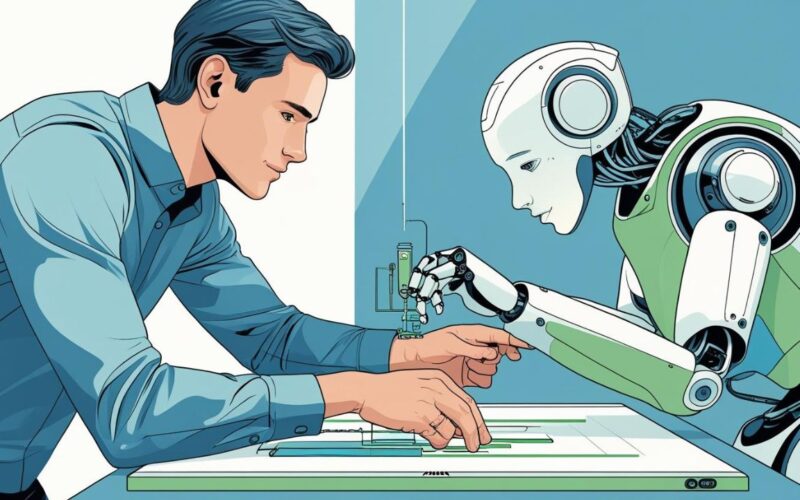Things Which Might Take Your Job
The Real Threat Is Not AI — It Is Resistance to Change
Think about it. Work has always evolved. From factories to computers to the internet — every wave of progress brought shifts. Some jobs vanished, sure. But new ones showed up too. What is different now? The speed of it all. AI is not wiping out jobs overnight. But it is shifting what jobs look like and what skills matter. That is where the real risk comes in.So, what actually puts your job at risk?
It is not some fancy algorithm. It is staying stuck. Not learning. Not adapting. Not being open to using new tools. In short: stagnation is the real job killer.How AI Is Really Changing the Way We Work
Let’s clear this up — AI is great at handling routine, repetitive stuff. You know, the kind of tasks that feel like copy-paste all day. Think:- Data entry
- Scheduling
- Basic number crunching
Real-world examples
Healthcare
AI can scan images faster than any human, sure. But it cannot replace a doctor’s judgment, empathy, or real-life decision-making.Finance
Algorithms might spot market trends in seconds. But clients still want real advisors they trust when money is on the line.Customer Service
Chatbots can answer “Where’s my order?” But when someone’s upset or confused? They want to talk to a real person who gets it. So no, AI is not stealing the whole job. It is just reshuffling the work — taking the mechanical stuff off your plate so you can do more of what matters.The Skills That Will Actually Keep You Ahead
Let’s be honest — robots are smart. But they are still terrible at being human. That is where your edge is. Here is what companies are really looking for now:Critical Thinking
Can you make sense of messy data? Solve problems when there is no clear answer? That is gold.Creativity
Whether you are writing, designing, or thinking up fresh solutions — this is the stuff AI still cannot fake well.Emotional Intelligence
Can you read the room? Support a colleague having a rough day? Lead a team without acting like a robot yourself?Adaptability
Tech changes. Tools change. Jobs change. If you can roll with it and pick up new skills along the way, you are in a great place.Who Is Actually at Risk Right Now?
If your job is super repetitive, follows the same steps every day, and does not involve much thinking or human interaction — yeah, that role might be up next for automation. But even then, it is not game over. The real danger is when someone sees the change coming… and does nothing. A 2023 report from the World Economic Forum said 44% of skills will change within just five years. That is almost half of what you do on the job needing an update. The people who do best? The ones who keep learning. The ones who say, “Alright, what else can I try?”What You Can Actually Do Right Now
Okay, let us not just talk theory. Here are some practical moves you can start today — nothing fancy, no rocket science.1. Learn something new
Courses, YouTube videos, free certifications — pick what fits your energy and time. Focus on emerging fields or even tools you already use.2. Build your human edge
Communication, leadership, empathy — these are not “soft” skills anymore. They are survival skills.3. Use AI as a sidekick, not the enemy
Play with it. Learn how it can help you save time. Whether it is writing emails, organizing tasks, or brainstorming ideas — it is there to help, not compete.4. Stay curious
Keep an eye on how your industry is shifting. New tools. New trends. New roles. Be early, not late.5. Talk to people
Yep, old-school networking still works. Chat with others in your field. Collaborate across teams. Share what you are learning — you might get unexpected doors opening up.Conclusion
AI is not your enemy. But standing still while the world moves forward? That could be. If you keep learning, stay flexible, and lean into what makes you uniquely human — you are not just safe, you are way ahead of the game. So no, AI will not take your job. But refusing to grow? That just might. And hey, if you are still reading this… Maybe that means you are already curious. Already thinking. Already moving. And that is the best first step.





